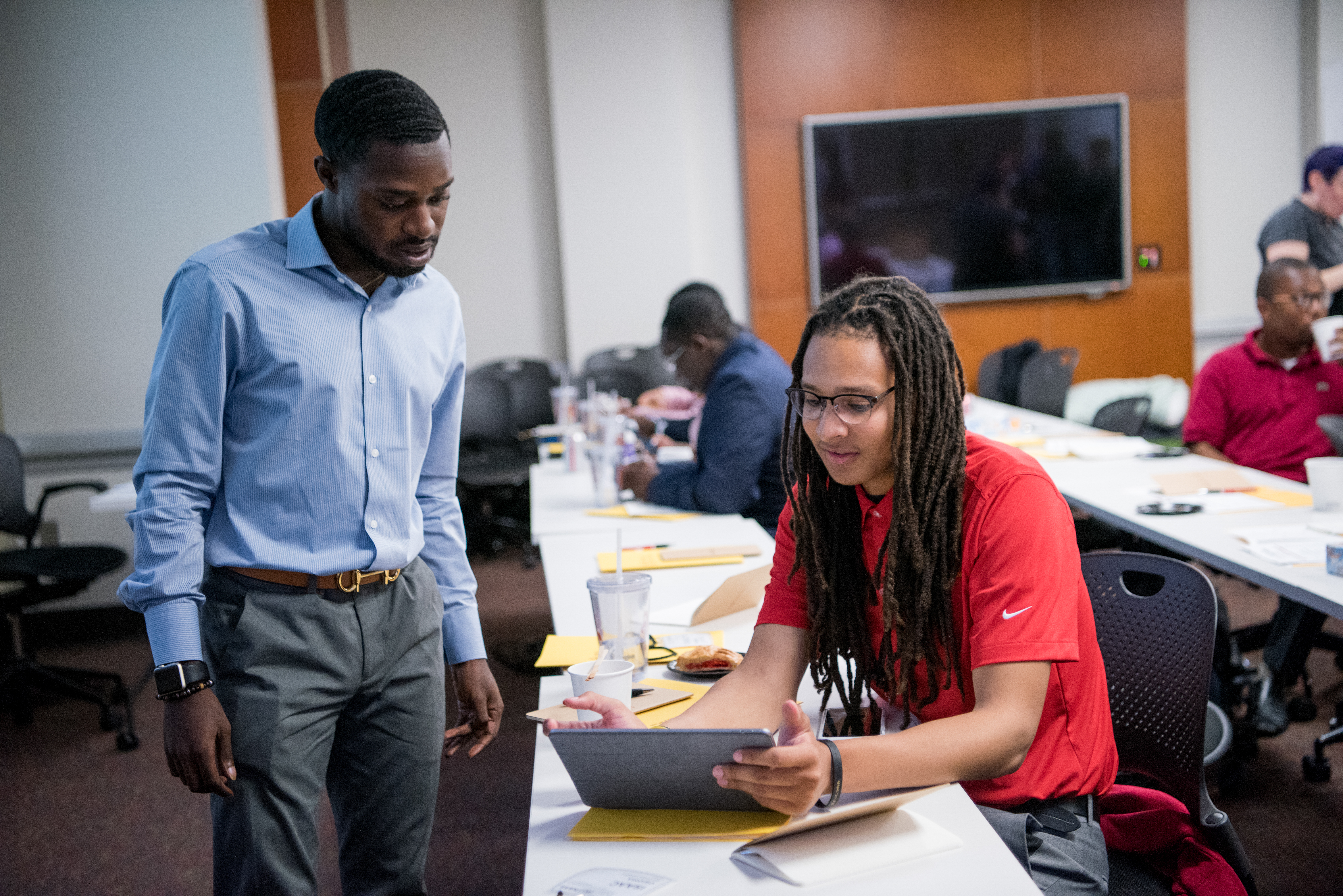Students at Worcester State University inspired by testimony of African American liberator

It was the interview of Leon Bass, a U.S. soldier who took part in the liberation of Nazi concentration camps, only to return stateside and learn that he and other African Americans were barred from living in the dormitories at West Chester University of Pennsylvania.
“After fighting the war he felt like he didn’t belong at the institution where he was trying to get his education,” said Konadu.
Konadu was so moved by the testimony he brought it back to Worcester State. Earlier this semester, he put on a diversity-training workshop for Worcester’s roughly 65 dormitory residential advisers that centered on an IWitness University activity.
Called “Countering Intolerance in Co-Curricular Spaces,” the activity includes short clips of testimony from Bass as well as Holocaust survivors Elena Nightingale and Silva Vainer.
Konadu said the clips resonated with his RAs, so much so that they opened up about their experiences of feeling excluded.
 Manasseh Konadu (L), a student at Worcester State University in Massachusetts, works with another student at USC Shoah Foundation's Intercollegiate Diversity Congress Summit in September.
Manasseh Konadu (L), a student at Worcester State University in Massachusetts, works with another student at USC Shoah Foundation's Intercollegiate Diversity Congress Summit in September.It prompted one RA to recall the first time he was told he was black. After moving as a child from the inner city to a predominantly white neighborhood, he was told by a kid in his new neighborhood: “You shouldn’t be here because you’re black.”
“Up until that moment, race never played a factor in his life because everybody was just a kid,” Konadu said. “This made other people (at the workshop) feel like, if my fellow RA was going through this, this is something that we really need to start paying attention to.”
The session was so effective the Worcester administration has asked Konadu to come back to deliver the same workshop to RAs in future semesters.
Sara Brown, a postdoctoral teaching fellow at USC Shoah Foundation, said Konadu’s success exemplifies the goals of the Intercollegiate Diversity Congress summit that he and 20 other student leaders attended in September.
“What’s inspiring about Manasseh is that he didn’t just use our testimony to effect positive change on his campus; he took it and he integrated it into an activity that he designed and facilitated,” she said. “He took it to a whole other level. It also speaks to his incredible talent.”
Konadu – a senior majoring in history – is black, and says he occasionally feels the sting of being a member of an under-represented group. In addition to being the only student trustee on the university’s governing board, he is its lone nonwhite member, and said he sometimes feels out of place when in the company of mayors, college presidents and other luminaries.
“I might introduce myself as the student trustee at Worcester State and they might ask me again to make sure I am that person,” he said. “It’s as if they can’t believe that a person of color would be the student trustee at my school.”
Konadu is a believer in dialogue.
Last year, he organized a town hall forum at Worcester following a troubling incident, in which somebody on campus defaced a poster containing the phrase “Be part of something bigger than yourself” by changing the word “bigger” to a racist slur.
When people arrived to the forum in groups, Konadu asked them to split up and sit next to strangers, so as to break up cliques and encourage genuine interaction.
“We gave people the opportunity to be upset – but to be upset with good reason instead of just having rage,” he said.
Konadu is struck by how testimony can also foster respectful dialogue about painful topics. At the summit in September, testimony helped form lasting bonds among the student leaders, he said.
“A lot of our own personal testimonies were kind of drawn out because of the testimonies in the great collection of the Shoah Foundation,” he said. “A lot of those testimonies played a big part in how we started to hang out even after our workshops. We started to get a little bit closer because it was easier to identify with each other because we kind of knew what struggles we all go through.”